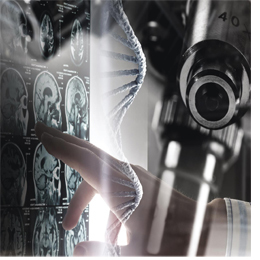
Here in South Jersey, medical advances are happening on a daily basis. We recently caught up with three local doctors who filled us in on the latest advances in their field.
Fertility Preservation
Egg freezing and fertility preservation remains one of the hottest topics of discussion these days, says Dr. Louis R. Manara, medical director of the Center for Reproductive Medicine and Fertility in Voorhees. The ability to freeze eggs without compromising them at all is huge not only for women who have made a career choice that delays their timing of having children, but also to those who must preserve their fertility because of cancer treatment.
“This is really a wonderful thing,” says Manara. “We now have the ability to preserve fertility for women who, for whatever reason, aren’t planning to have children during their prime child-bearing years.”
Though technology has come incredibly far, Manara says it’s important for patients to realize that there is still a “sweet spot” for when preservation works best. Manara says that this spot is typically in the mid-30s. To do it earlier is unnecessary, but to do it too late then the egg quality will have suffered.
“You want to preserve the best quality egg possible in order to provide the best chance at a healthy baby,” Manara says.
Improvements to IVF
Thanks to recent advances in assisted reproduction, couples facing the challenge of infertility can be hopeful again, says Dr. Daniel Kaser of Reproductive Medicine Associates of New Jersey.
Human embryos are now cultured for an additional two to three days to the blastocyst stage and are routinely tested with comprehensive chromosomal screening (CCS) to determine the genetic health of the embryo prior to implantation. This allows doctors to counsel patients about which particular embryo contains the correct number of chromosomes and can develop into a healthy pregnancy. According to Kaser, CCS has been shown to improve live birth rates and may also lower the risk of miscarriage.
“Furthermore, embryos are now routinely frozen prior to transfer using a novel method of flash-freezing called vitrification,” Kaser continues. “This advancement has drastically
improved embryo survival rates and allows the embryos to be created in one menstrual cycle and then transferred in the next. By separating the IVF stimulation and transfer processes, a woman’s hormone levels more closely mimic the natural state, and as a result, the cycle is less likely to result in miscarriage, preterm birth and low birth weight infants.”
This new paradigm of extended culture, genetic testing and frozen embryo transfer allows a single embryo to be implanted in the vast majority of cycles, regardless of a woman’s age. Accordingly, the risk of twins and triplets, along with the health concerns that come along with them, is nearly eliminated.
No Time Wasted
When it comes to emergency cases involving the brain, time is truly of the essence. Our Lady of Lourdes Medical Center is helping save time—and in turn, lives—with their new hybrid operating suite. The suite is centered around a biplane angiography system, which is a type of digital X-ray that constructs a real-time, three-dimensional roadmap of the blood vessels leading to the brain.
Recently, Lourdes expanded its partnership with Global Neurosciences Institute (GNI) to create a comprehensive hub for neurosurgery in South Jersey. Erol Veznedaroglu, MD, FACS, FAANS, FAHA, an internationally renowned neurosurgeon who leads GNI says that if a patient comes in with a ruptured aneurysm or a stroke, they can immediately go from performing an angiography to performing brain surgery. That translates to time saved.
Of course, it’s amazing to have the technology and the equipment but Veznedaroglu says that wouldn’t be good enough if they didn’t also have doctors with experience.
“When it comes to a true emergency such as bleeds in the brain, you can’t have a neuroscience department with just one or two doctors doing this,” Veznedaroglu says. “You need someone on call, 24 hours a day, seven days a week. Here we have the combination of both experienced doctors who are available and the most advanced equipment.”
Published (and copyrighted) in South Jersey Magazine, Volume 14, Issue 4 (July, 2017).
For more info on South Jersey Magazine, click here.
To subscribe to South Jersey Magazine, click here.
To advertise in South Jersey Magazine, click here.












